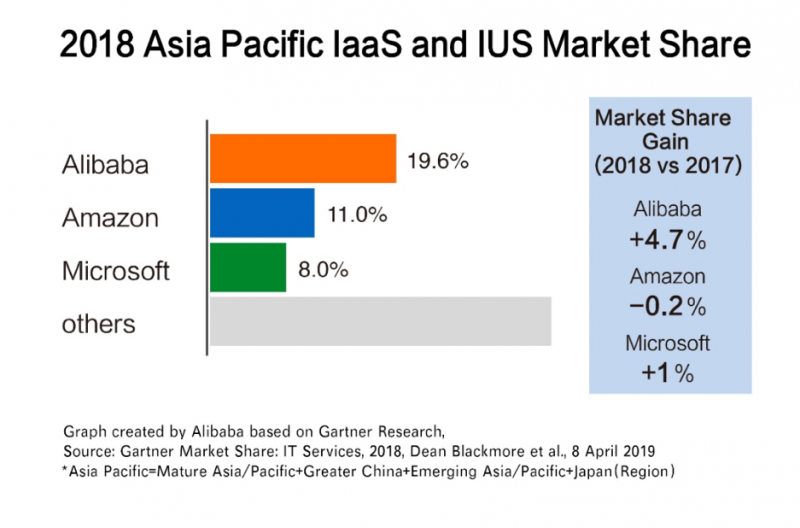What is cloud computing? By definition, cloud computing is the delivery of on-demand computing services—from storage to applications, databases, networking, processing power, analytics and intelligence—delivered via the internet. Today, it is almost impossible to imagine the world of business without cloud computing and cloud services being part of overall business strategy and operations.
It’s no longer a question of “Should I go cloud?” It’s a matter of what services that organisations need, and which provider(s) can meet these requirements. Based on the latest report by Flexera’s RightScale cloud industry research team, 94 percent of enterprises use cloud.
Within the cloud computing sphere, there’s public, private and hybrid cloud options. This further drills down to Infrastructure as a Service (IaaS), Platform as a Service (PaaS) and Software as a Service (SaaS). Increasingly, enterprise public cloud spend is growing significantly and rapidly, while private cloud growth slows. Also, enterprises are employing a multi-cloud strategy (84 percent)—with a combination of either public and private clouds; multiple public clouds; or multiple private clouds.

The benefits of adopting cloud is aplenty; here are 10 reasons why businesses should go cloud:
1. Cost effective
With cloud, companies do not have to purchase hardware, build and operate a data centre. Companies can save on capital expenditure by not having to spend millions on hardware, on-prem facilities, utilities, and other expenses.
2. Flexibility
Cloud computing offers a flexible cost structure, typically pay-as-you-go, so companies only need to pay for what they use, when they use it. This way, companies don’t end up paying for features they don’t need or get charged for unused services. Additionally, there’s reduced costs related to IT system upgrades, maintenance, wages for expert staff, and more.
3. On-demand, always-on availability
Cloud providers are extremely reliable, typically delivering 99.99 percent uptime. Connection is always on and always accessible via an internet connection.
4. Accessibility and mobility
Data, applications and services are always available 24/7/365, no matter where employees are over the world. Employees can operate anywhere in the world via their smartphones, tablets and notebook PCs, ensuring better uptime and better work-life balance for them.

5. Better collaboration, in real-time
With always-on availability and mobility, cloud computing enables better intra- and inter-organisation collaboration. Teams can work remotely, communicate, share files and get work done collaboratively in real-time.
6. Rapid, infinite scalability
Cloud allows businesses to scale up or down according to current needs. Scale up storage instantly, or add more virtual servers when the need arises. This is impossible to do in a traditional sense, allowing for ultimate flexibility and scalability for enterprises. Scalability means agility; the ability to quickly meet business demands is one of the key ingredients to stay ahead of the curve.
7. Swift disaster recovery
Let’s face it. Downtime is bad for business—from loss of productivity to revenue, and to brand reputation. While no solution is fail-proof and there may be no way for any business to anticipate disasters, cloud computing can help speed up recovery. Cloud-based service can get businesses up and running in all kinds of emergency scenarios—from natural disasters to power outages, to security breaches and data loss.
8. Security
Security of cloud services remains one of the main concerns for companies moving to cloud or are already using cloud services. Breaches of security, in general, are rare. An in-house system managed by an internal IT team is more likely to be more vulnerable than a system monitored by a cloud provider’s team of engineers dedicated to protecting the infrastructure. In fact, over 90 percent of businesses saw an improvement in security after switching to cloud, according to RapidScale. Additionally, cloud makes it easier to meet government compliance requirements. Cloud-based systems also get automatic software updates and security patches, ensuring always up-to-date software features and security.

9. Sustainability
Cloud computing is proven to be more environmentally-friendly and results in less of a carbon footprint. By harnessing virtual shared services rather than physical products and hardware, organisations can cut down on paper- and e-waste, improve energy effciency and reduce their carbon footprint. A Pike Research report predicted data centre energy consumption will drop by 31 percent from 2010 to 2020.
10. Insight
In the digital age, data is power. Many cloud solutions offer integrated data analytics. Data intelligence translates to actionable insight and ultimately business agility and competitive edge.
Cloud players
To that end, there are four big players in cloud computing, specifically in the public cloud space—Amazon Web Services (AWS), Microsoft Azure, Google Cloud, and up-and-comer Alibaba Cloud.
Alibaba Cloud is now the world’s third largest IaaS providers, reporting consistent triple digital revenue growth in recent years, topping USD2.5 billion in 2018 (Data: Gartner). In the Asia Pacific region, Alibaba Cloud leads in market share, capturing 19.6 percent in 2018.

Why Alibaba Cloud?
The largest public cloud service provider in China, Alibaba Cloud now has 61 availability zones across 19 economic centres globally, with coverage extending across mainland China, Hong Kong, Singapore, Malaysia, Indonesia, India, Japan, Australia, the Middle East, Europe, Indonesia, UK and the US (East and West Coast).
Being the data intelligence backbone of the Alibaba Group, Alibaba Cloud‘s strength is in data intelligence—providing businesses with actionable insights and decision-making capabilities, powered by artificial intelligence (AI).
With local presence and a stranglehold in the Asia Pacific, Alibaba Cloud provides unmatched latency and response time through its availability zones in the region—Malaysia and Indonesia. Local presence means local market knowledge and the ability to meet local regulations and standards.

Whilst it’s one thing to boast a global footprint, it’s another to power successful businesses and use cases. There’s no bigger testimony for Alibaba Cloud than powering Alibaba’s own ecosystem—from e-commerce to logistics, payments to entertainment and travel. Alibaba Cloud is the provider for the world’s biggest retail event—the 11.11 Global Shopping Festival; powers Alipay, the world’s largest e-payment platform; enables the world’s largest logistics platfom, Cainiao; the backbone for Lazada’s regional 11.11 and 12.12 shopping festivals; as well as empowering many renowned businesses across the world.
This post is brought to you exclusively by Alibaba Cloud
Photo credits: Alejandro Escamilla | Unsplash, Imgix | Unsplash
Links:
- https://www.flexera.com/blog/cloud/2019/02/cloud-computing-trends-2019-state-of-the-cloud-survey/
- https://blogs.flexera.com/cloud/cloud-industry-insights/cloud-computing-trends-2018-state-of-the-cloud-survey/
- https://www.gartner.com/newsroom/id/3354117
- https://www.gartner.com/en/newsroom/press-releases/2019-07-29-gartner-says-worldwide-iaas-public-cloud-services-market-grew-31point3-percent-in-2018
- https://www.navigantresearch.com/newsroom/cloud-computing-could-cut-data-center-energy-consumption-by-nearly-one-third-by-2020









